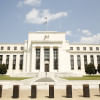Let taka depreciate further: economists

As the US dollar shortage persists, businesses in Bangladesh are increasingly finding it difficult to open letters of credit (LCs) since banks can't supply the adequate American greenback needed to finance imports.
This means many companies can't secure the raw materials required to keep their factories up and running, which has forced them to cut production and hampered job creation.
Most of the listed companies representing various sectors that disclosed their financial reports last week said the LC opening problem has hurt their production of goods. As a result, profits have fallen drastically.
Against the backdrop, economists are recommending the government make the foreign exchange rate market-based and allow the depreciation of the local currency gradually against the US dollar in a bid to reduce the demand for the American greenback and draw remittance.
In September, the central bank fixed uniform buying and selling rates of the US dollar in order to contain the volatility in the foreign exchange market, which has been caused by a dollar shortage driven by higher import bills amid lower export and remittance receipts.
The move eased the volatility initially to some extent but has largely failed to overcome the crisis. Rather, the dollar shortage has deepened and the crunch may linger since the factors responsible for the current situation such as the Russian war in Ukraine and the global energy crisis are still there.
"There are multiple issues in the economy and the government is worried about investment, the banking sector and higher inflation. But a coordinated macro-management is still missing," said Debapriya Bhattacharya, a distinguished fellow at the Centre for Policy Dialogue.
The government has unveiled some policies but they were not inter-lined. So, for example, when the exchange rate was adjusted, the interest rate cap on loans was not removed.
"A crawling downward adjustment of the local currency against the greenback is a must at the moment," said Bhattacharya.
He thinks that if the government does not allow the adjustment, there will be a crash-landing for the taka like it happened recently.
As the foreign exchange reserves depleted fast, the local currency lost its value by about 25 per cent against the US dollar in the last one year and the major depreciation took place between August and September.
Bhattacharya said the government thinks that the downward adjustment of the currency may stoke inflationary pains.
"But the government should reduce the money supply by raising the interest rate in a bid to contain the inflationary pressure."
Inflation eased for the fourth consecutive month in December as it slipped to 8.71 per cent. In August, inflation surged to a 10-year high of 9.52 per cent.
Ahsan H Mansur, executive director of the Policy Research Institute of Bangladesh, also thinks that the exchange rate and the interest rate should be left to the market instead of being determined by the central bank.
In April 2020, the central bank set the lending rate at 9 per cent. The lending rate was adjusted upwards to 12 per cent in January for only consumer loans.
With a market-based exchange rate, the local currency may weaken further, but it will be helpful in bringing stability in the demand and supply of dollars, Mansur said.
"If the government keeps the rate low artificially, there will be a point when it would have to be adjusted drastically and the consequences of such drastic adjustment would be much dire."
For a proper macroeconomic situation, an environment needs to be created where demand and supply should be market-based.
"However, the government is trying to fix all the things from the stock market to the interest rate of the banking sector," said Mansur.
"In reality, the fixing policy is not working in any sector."
The former economist of the International Monetary Fund warns that if manufacturers continue to face challenges in opening LCs, it will squeeze production and job creation will be impacted.
Owing to the dollar crunch, LC opening slumped 14 per cent year-on-year in July-December of the current financial year of 2022-23. Settlement declined 9 per cent, central bank data showed.
Mansur advised the government to reduce the costs of local-funded projects and speed up the implementation of foreign-funded projects.
The implementation of foreign-funded projects under the Annual Development Programme has remained slow, with just 26.5 per cent of the allocation being spent in the first six months of 2022-23.
AB Mirza Azizul Islam, a former adviser to the caretaker government, says since the sourcing of raw materials in the manufacturing sector is almost entirely import-dependent, the government should ensure their smooth imports.
"Otherwise, a dearth of raw materials would create disturbance in the economy."
The cost of manufacturing has already gone up owing to the hikes in the tariffs of gas and electricity, higher raw material prices globally, and escalated freight costs.
The government has raised the retail price of gas by 14.5 per cent to 178.9 per cent for industries, power plants and commercial establishments, effective this month.
On Tuesday, the government increased the electricity price once again by 5 per cent at the retail level -- the second hike in 19 days as it steadily retracts subsidies from the power sector.
Islam also thinks that a market-based exchange rate may give some relief now.
"It may bring about the devaluation of the local currency. But remittance flow will be higher. On the other hand, capital flight will be costlier amid a higher exchange rate regime."
As the demand for US dollars can't be met, banks are delaying the opening of LCs, so the government should try to increase the supply of the American greenback, said Mustafa K Mujeri, executive director of the Institute for Inclusive Finance and Development.
Export and remittance receipts have to be increased to ensure higher availability of the US dollar, he said, adding that the loans from the IMF may improve the situation.
On January 30, the IMF approved a $4.7 billion credit facility for Bangladesh.
Mujeri, also a former director-general of the Bangladesh Institute of Development Studies and a former chief economist of the central bank, says if the government allows a market-based foreign exchange rate and lets a slow depreciation of the local currency, it may offer some respite since the move is expected to bring down the demand for dollars.
"However, a higher depreciation will fuel inflationary pressure, so the process should be slow."

 For all latest news, follow The Daily Star's Google News channel.
For all latest news, follow The Daily Star's Google News channel. 








Comments